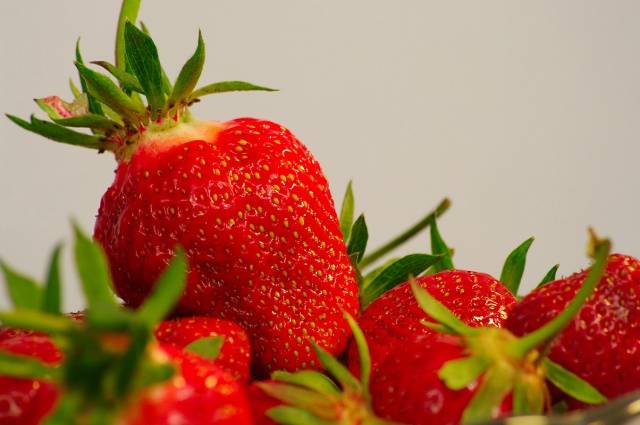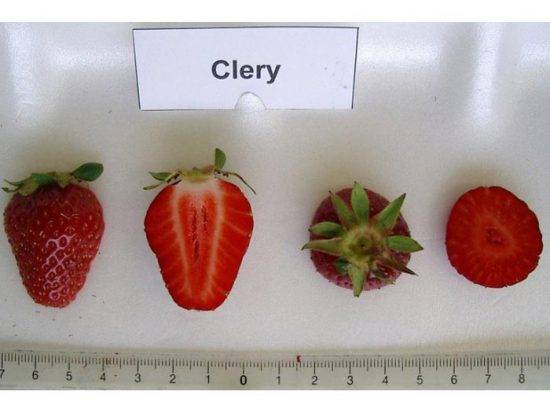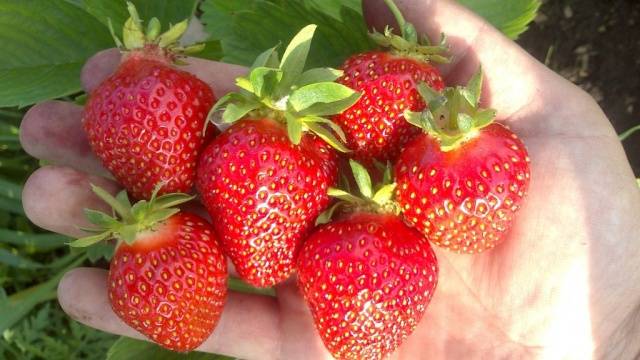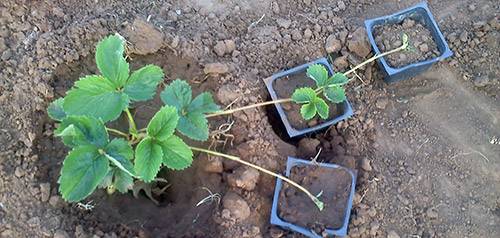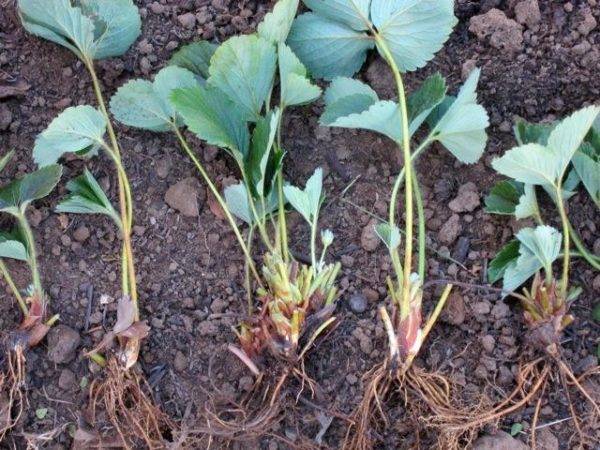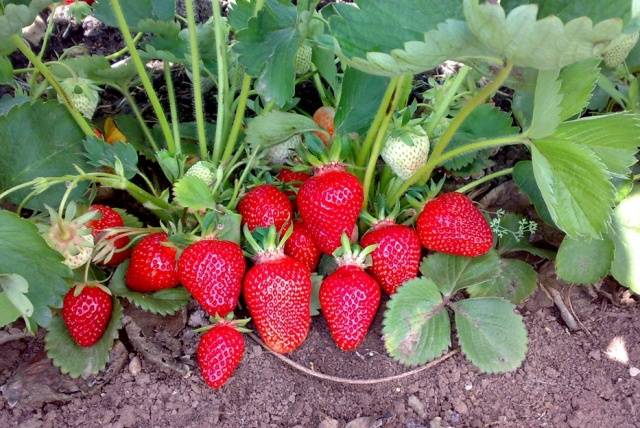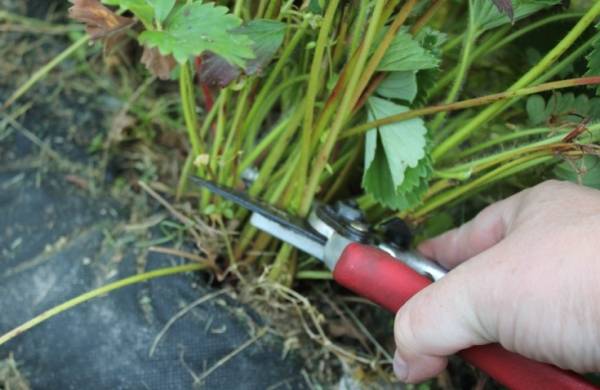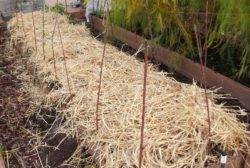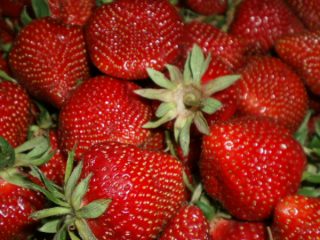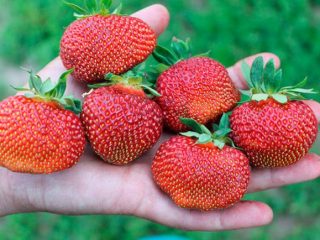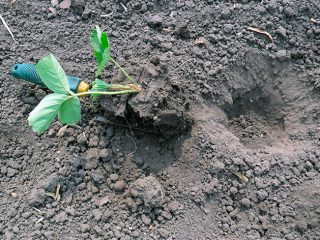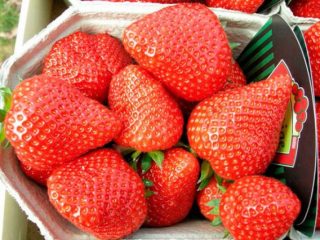Content
Modern breeders delight gardeners with a wide variety varieties of garden strawberries or strawberries. This culture takes up more and more areas in summer cottages and household plots. Strawberry gardeners create fruitful beds with different ripening times to keep the berries fragrant and tasty for as long as possible.
Often, gardeners plant early varieties of strawberries, but not all of them are adapted to the climatic conditions of the regions of Russia. Clery strawberries satisfy the requirements of gardeners in many ways, including frost resistance and early yield. This is a variety of Italian breeders, bred at the Mazzoni Group enterprise.
Botanical properties
To learn more about Clery's strawberries, you should see the description of the variety, photos and reviews of gardeners.
- Garden strawberry belongs to the early remontant varieties. It grows in a strong, sprawling or compact bush.
- On a high stem, there are large, dark green leaves with the characteristic gloss of Clery.
- The inflorescences do not rise above the foliage. The flowers are snow-white, with a bright center. Fruit set is high.
- The berries of the Clery variety are large, each weighing up to 40 grams. The fruit is almost the same size. The variety has its own champions, reaching a weight of 50 grams.
- The shape of the berries is conical with a slightly blunt tip.
- At the stage of ripening, the fruits are red, with technical ripeness - shiny, dark cherry.
- The berries are sweet with almost no acidity, with a strawberry aroma.
- The fruits, as gardeners note in the reviews, are as dense as those of the variety. Alba, without voids inside. This can be clearly seen in the photo below.
Strawberries begin to bloom early, in early May, because the flowers are not afraid of light frosts. In late May, early June, you can treat yourself to a delicious aromatic berry.
The absorption rate is high, so there are no problems with strawberry cultivation. The whiskers are close to the ground and root well.
Characteristics
The Clery variety, bred in Italy, has many advantages, although the disadvantages could not be avoided.
Let's start characterizing the variety with positive aspects:
- The high density of the Clery strawberry pulp allows the crop to be transported over long distances. This quality attracts farmers. During transportation, berries do not wrinkle, do not lose their shape and do not leak out of juice.
- Under optimal conditions, they can be stored without processing for up to 5 days.
- The Clery strawberry variety is versatile, suitable for any culinary treatment, including freezing.
- The lack of acid allows people with gastrointestinal problems and high acidity to use the berry.
- In terms of chemical composition, the Clery variety surpasses many varieties of strawberries, therefore it is considered the most useful.
- The unpretentiousness of care is also attractive, because the plants tolerate winter well, they are able to endure a short-term drought practically without loss of yield. Clery's strawberries are not very demanding on the soil.
- A plant with an average yield, which does not always suit gardeners: 250-300 grams of shiny tasty berries can be harvested from a bush.
- Clery's garden strawberry is resistant to root diseases and various molds.
According to gardeners, Clery has a number of disadvantages:
- Clery seedlings in the first year give a small harvest, good fruiting is observed in the third year of life;
- frequent replacement of landings, after about 4 years;
- with a disease of one bush of Clery's garden strawberries, all plantings are affected by the infection;
- high cost of planting material.
Reproduction methods
Clery garden strawberries can be propagated in any way, but according to gardeners with extensive experience in growing strawberries, it is better to use rooting of rosettes and dividing the bush.
Propagating strawberries with a mustache
Unlike many varieties of garden strawberries, including Alba, Clery develops a sufficient number of mustaches. When choosing, you need to pay attention to the yield of the bush. Since seedlings with a closed root system take root 100%, any plastic containers are used for rooting. The method of obtaining seedlings of the Clery variety is well represented in the photo.
When 6 leaves are formed on the seedlings, the seedling is transferred to a permanent place.
By dividing the bush
The yield of the Clery variety, when planted in cuttings, is faster than seed or rosette seedlings. To do this, choose the strongest and healthiest three-year-old bush of garden strawberries and divide it into parts.
Planting and care rules
It is best to plant Clery strawberries in early August so that the strawberries can gain strength before frost. Spring planting can be applied immediately after the snow melts.
Clery's strawberries do not require a high garden bed, but fertilizing and watering them is necessary.
The bushes are planted in two rows with a step of 30 cm, row spacings within 45-50 cm. Pay attention to the growing point: the heart should rise slightly above the ground.
When properly planted and cared for in June, Clery's strawberry bushes will look exactly like in the photo.
Clery is no more difficult to care for than other strawberry plantings. It all comes down to loosening the soil, timely watering, removing weeds and weeding.
It is better to use a drip system for watering it.
Despite the resistance of the Clery strawberry variety to diseases, it is necessary to monitor the condition of the bushes. At the first signs of illness, urgent action is needed.
How and what to feed
Clery strawberries are demanding on regular feeding. Organic matter should be applied in spring, it is more to the liking of plants.
The scheme for feeding the Clery variety with mineral fertilizers is shown in the table:
| Time | Fertilizer |
|---|---|
| Early spring | Complex, including a large number of trace elements. |
| During budding | Nitrofoska - 40 g + potassium sulfate - 5 g per 10 liters of water. Root dressing of 0.5 l for each plant. |
| When strawberries bloom | Watering with mullein in a ratio of 1: 8. |
| On the 20th of August | add complex fertilizer for strawberries (40g) and a glass of ash to a 10-liter bucket of water. For one bush, 1000 ml. |
Pruning
Clery strawberries produce a fair amount of mustache. If they are not removed in a timely manner, the rooted sockets will completely close the garden bed. In this case, you can not dream of any harvest. There will be few berries, they will begin to shrink. After all, Clery's garden strawberries will throw all their strength not on fruiting, but on growing daughter bushes.
Since a lot of leaves are formed, they are cut off, but only the old, dried ones. Do not touch green foliage. Strawberry pruning is done at the end of fruiting, so that new leaves can grow before the onset of frost. Petioles are cut, trying not to catch future peduncles. Look at the photo below, how the gardener does this work.
Wintering
If Clery garden strawberries are grown outdoors, then they must be covered for the winter.Before this, the leaves, shoots, whiskers are cut off. The soil under each bush is loosened to provide oxygen to the roots.
A bed of strawberries should be mulched, then covered with needles, straw or hay. The photo below shows how to properly cover the Clery variety in the warm regions of Russia. In regions with harsh winters, strawberry shelter needs to be approached more seriously.
Clery's garden strawberry has an amazing property: it can bear fruit all year round. Many gardeners transplant plants into large pots and grow strawberries in their apartment.
Different varieties of strawberries in the video:

